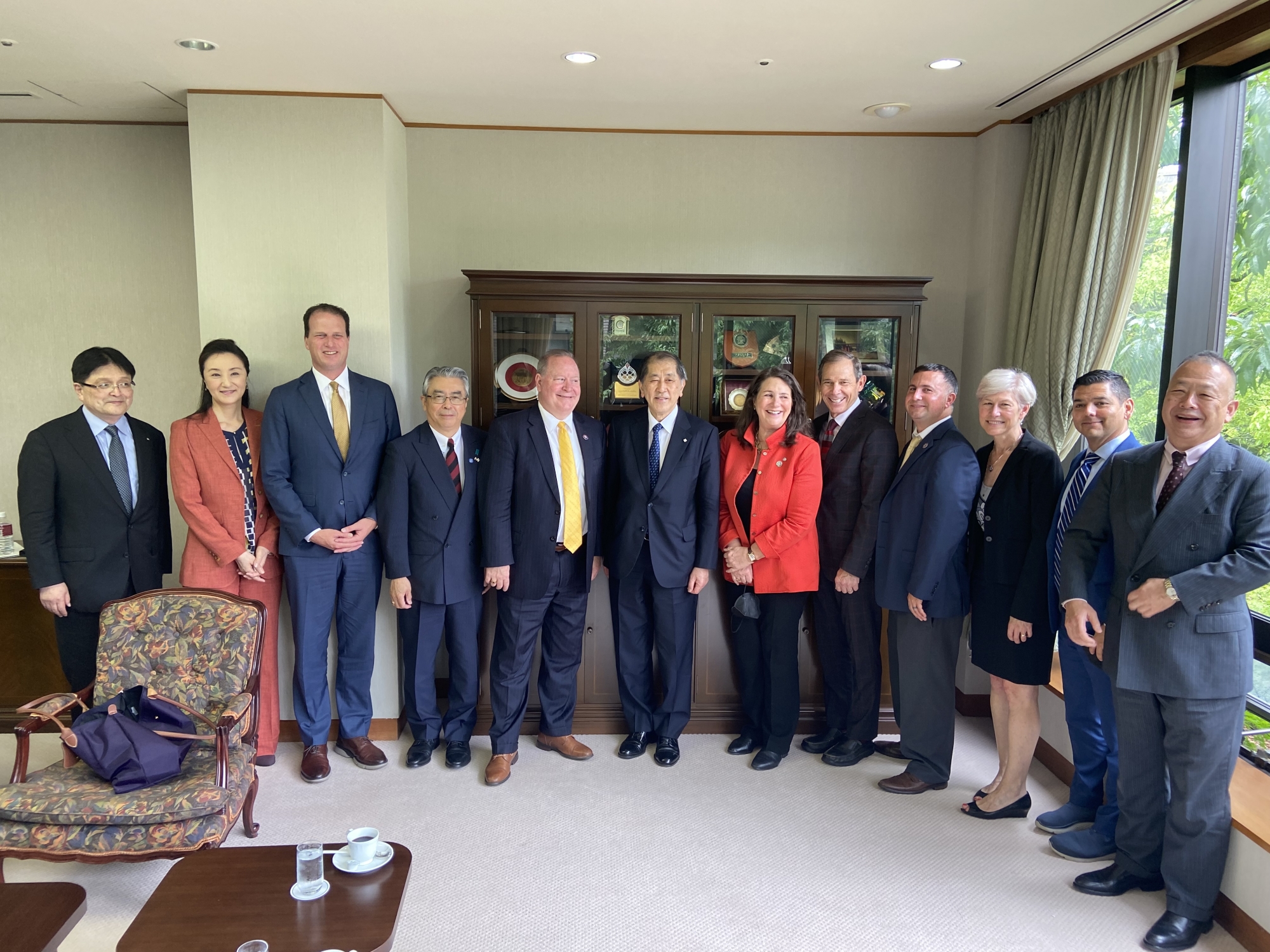Waseda students raise their voices—a rare opportunity to discuss politics with members of the U.S. Congress
Wed, Jun 8, 2022-
Tags
“How is [the United States’] progress going with electing its first female president?”
On May 31, 2022, members of the U.S. Congress and representatives of the 2022 Former Members of Congress (FMC), came to Waseda University to meet with students to discuss international matters and U.S. policies, and how they affect the relationship between Japan and the U.S. This visit was part of the FMC’s congressional study group to Japan and was made possible with the support of the Sasakawa Peace Foundation USA.
Titled “The 2022 FMC – Waseda Student Seminar,” the event allowed Waseda students and congress members to engage in frank discussions about current global issues in person, an important opportunity in this Covid-19 era of predominantly online interaction.
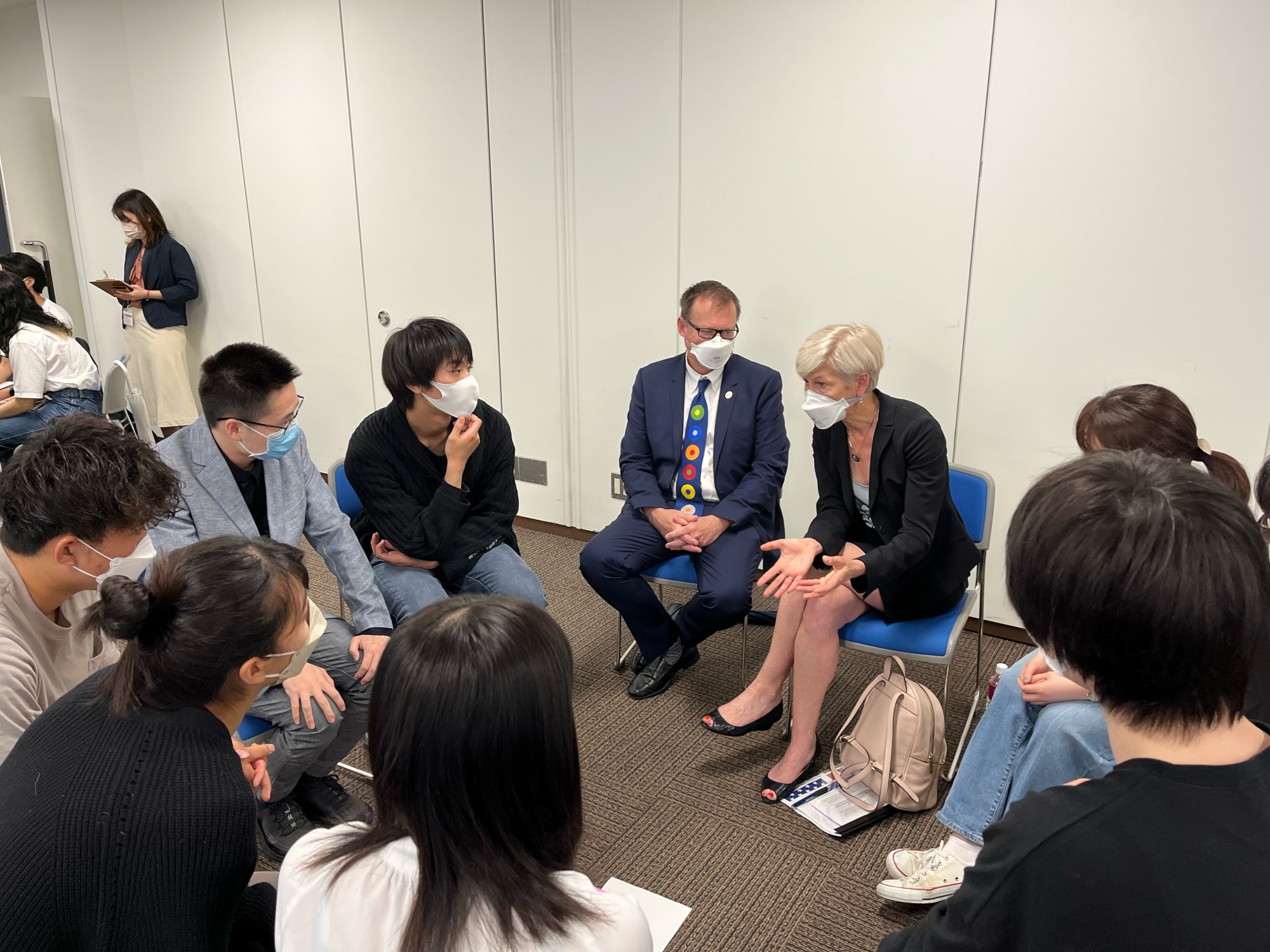
Professor Kazuhiko Yokota (School of Commerce) facilitated the discussion portion of the event. Yokota also teaches Global Business and Economics in Waseda’s Global Leadership Fellows Program (GLFP), a competitive four-year program that aims to foster global leaders who are knowledgeable about both Asian and Western culture, history, and society, and possess strong intercultural communication skills. The GLFP includes the opportunity for study abroad between Waseda University and universities in the U.S., nurturing talented individuals that can help bridge the East and West.
During the event, a diverse mix of about 50 domestic and international students, many from the above GLFP, and from various Schools at the University (Asia-Pacific Studies, Culture, Media and Society, Commerce, Education, International Liberal Studies, Political Science and Economics, Social Sciences) broke off into smaller groups with different congress members for group discussion and the exchanging of ideas and opinions. Here, students had conversations with congress members about, but not limited to, the following topics:
- Abortion
- Current and previous US Administration
- Freedom of speech and censorship
- Global climate change
- Gun control
- Mask wearing
- National Defense
- Nuclear weapons
- Populism
- Renewable energy
- Student loans
- Space exploration
- Technology
- Trans-Pacific Partnership (TPP)
- Ukraine crisis
- US midterm elections
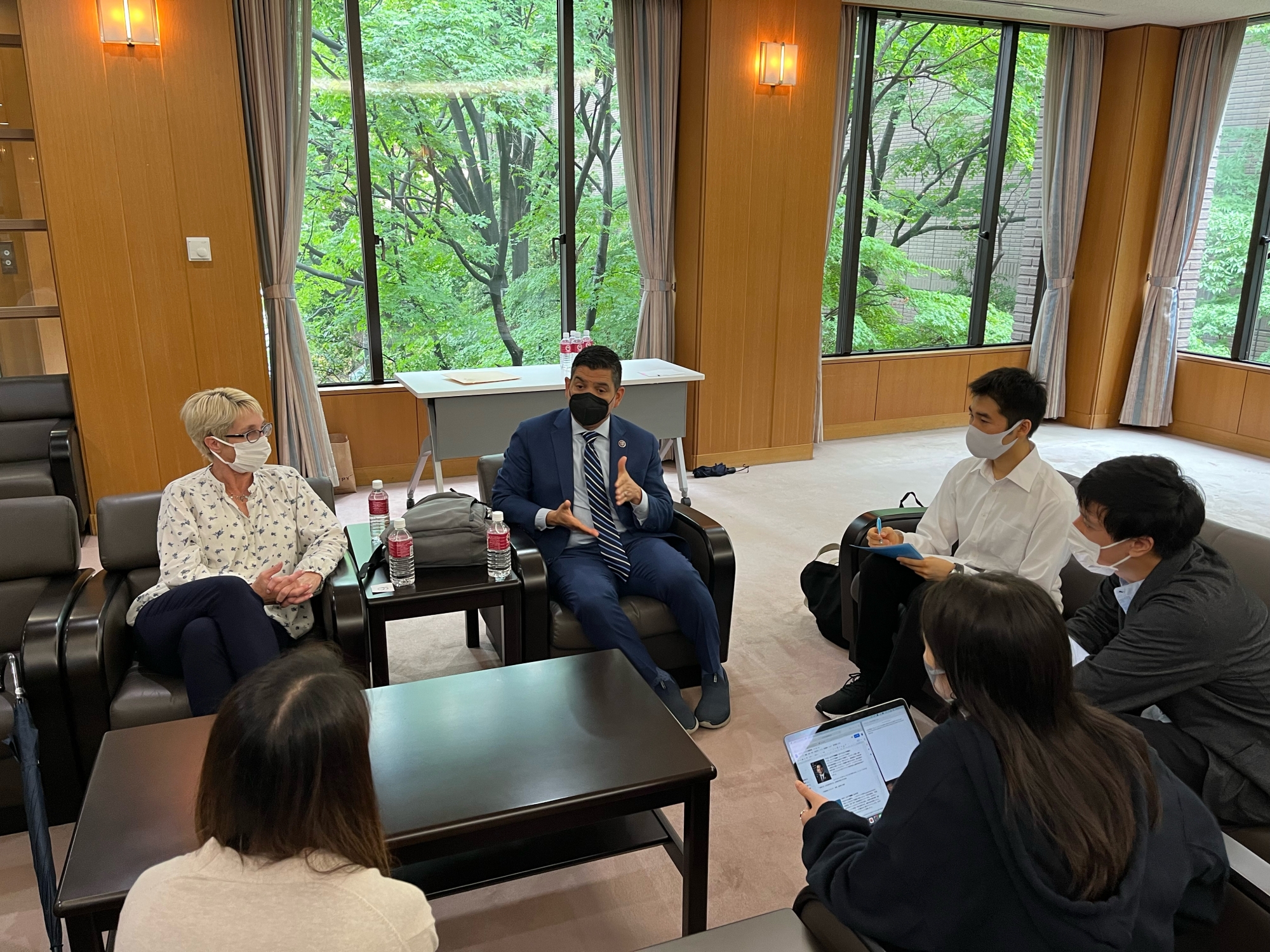
Each student came prepared with well-thought-out questions for each congress member, and in turn, each congress member provided answers in relation to their personal and party’s beliefs, while providing historical and modern context when needed.
One of the topics discussed was on the cultural differences in mask wearing. When a congress member asked the students if they would wear masks outside, even if the Japanese government said they didn’t need to anymore, some students answered that they would if everyone else were doing it. This raised an interesting discussion in the group about the collectivist culture in Japan versus the individualistic culture in the U.S. Other students added that there is a lot of societal pressure to wear masks, and that Japanese people are generally quite cautious and do not want to get Covid-19.
A congress member encouraged the students to speak up about things and get active in politics, as this generation will play a big part in issues such as climate change that will continue to be prominent for future generations. In another group discussing freedom of speech and censorship, a different congress member mentioned, “The best way to deal with speech you don’t like is to make your own speech with things you do like … you have to fight words with words.”
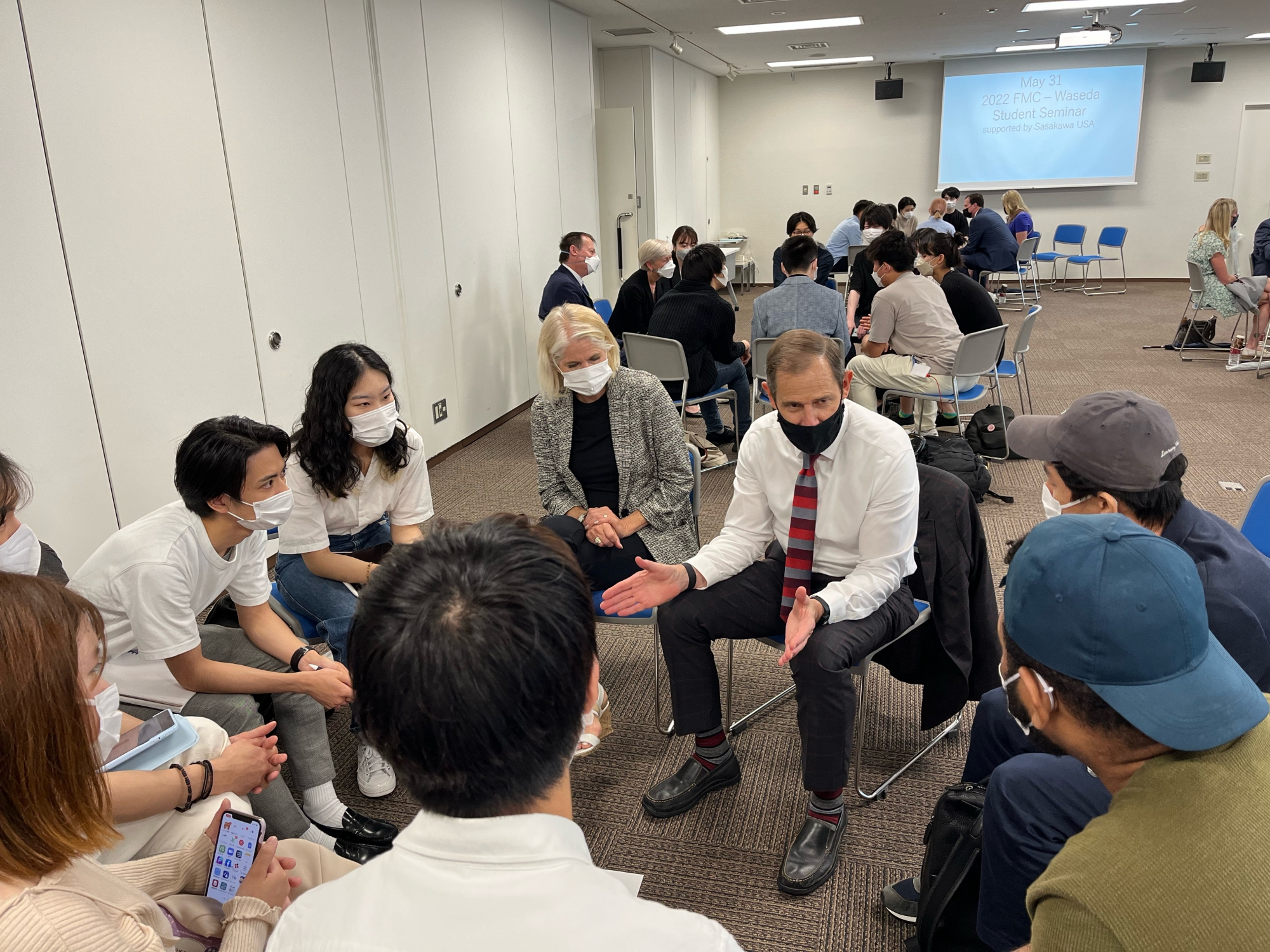
Students were unafraid to ask about difficult topics; several groups tackled the topic of abortion. A congress member explained their party’s stance and discussed some of the nuances of the pro-life position. When asked about current views in Japan, one student brought up the fact that both partners need to give consent when considering an abortion, which then prompted another student to ask the congress member whose choice they think is more important.
Other groups discussed the imbalance of power and representation between men and women in politics. One student cut to the chase, asking, “How is your progress going with electing your first female president?” The congress member responded, “There are more and more women getting into politics, I won’t be surprised if it happens soon.” They turned the question back to the students, asking about the current ratio of female politicians in Japan, which was met with conflicted faces from all.
Towards the end of the discussion time, one of the students asked a congress member, “Do you have any advice for young people like us?” He answered, “Don’t forget what really matters the most, which is your family and relationships. Live with no regrets.”
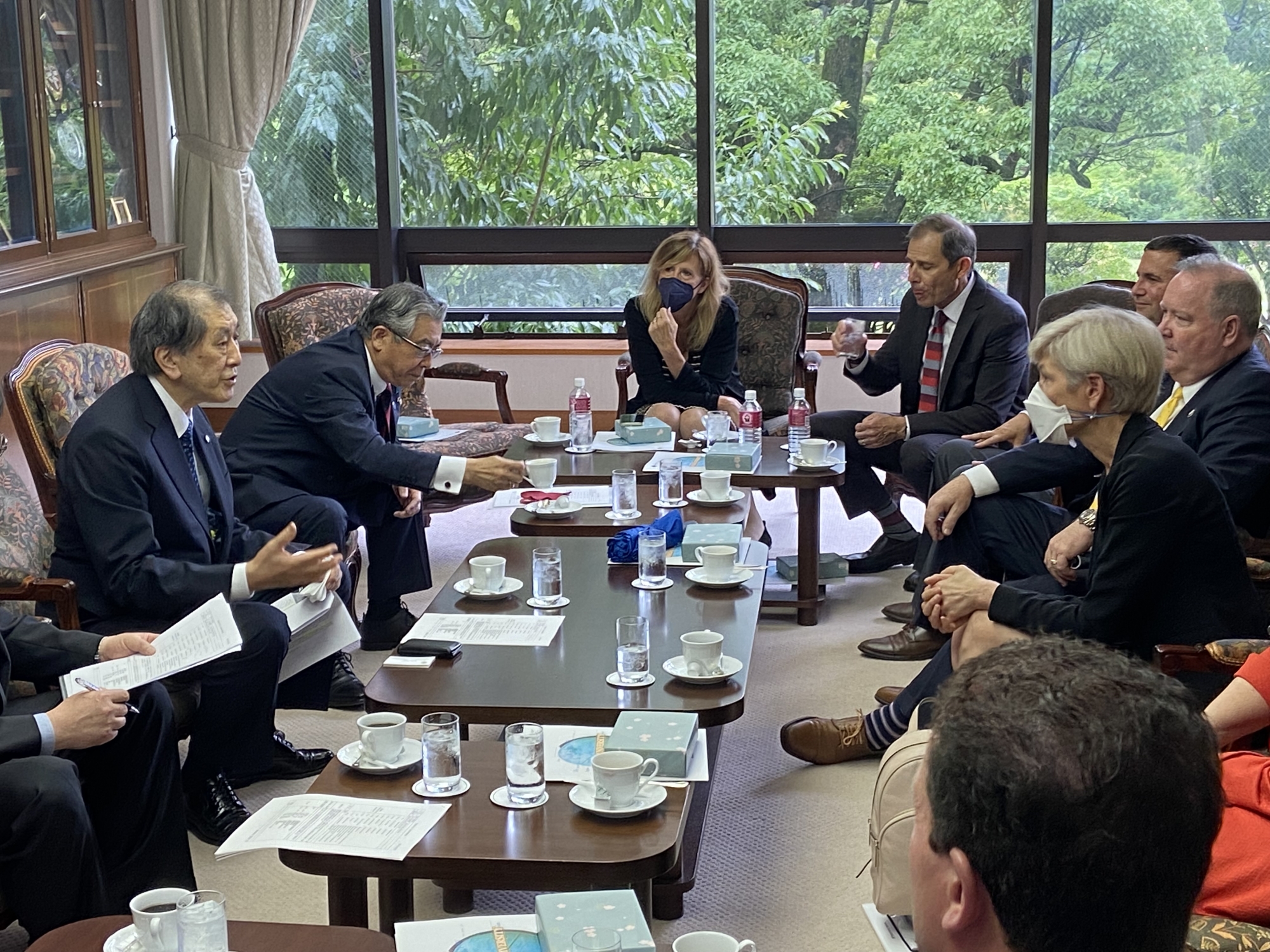
Afterwards, congress members and representatives from the FMC and the Sasakawa Peace Foundation USA met with University President Aiji Tanaka, Vice President for International Affairs and International Fundraising Masahiko Gemma, Professor Shinsuke Sugiyama (former Japanese ambassador to the U.S.) and Professor Mieko Nakabayashi. When President Tanaka asked how the discussions went, one representative praised the students, stating “Your students were particularly astute and well-educated, and they gave us a run for our money this morning with their own answers!”
After introductions, both sides began to discuss the relationship between the U.S. and Japan through the lens of international education, touching on current issues such as the decrease in students studying abroad between Japan and the U.S. and the high cost of tuition fees for international students studying abroad.
When asked about the University’s vision for its students, President Tanaka highlighted the University’s founding principles, as well as its mission to become a truly globalized institution that values diversity. Through valuable opportunities like this FMC-student seminar, President Tanaka hopes that students further their understanding of the value of a liberal democracy.
The University expresses its sincere gratitude to the members of congress and the 2022 FMC representatives, their families, and members of the Sasakawa Peace Foundation USA who came to visit to discuss global issues with our students.
